En route to my next destination, I stopped off at The Commons, another facially unassuming coffee shop identified by Western signage. It was right across the street from the Ladies' College, where men stared like wild dogs into the gate opening up to the campus, anxiously awaiting the exit of their daughters, sisters, and girlfriends. I ordered an iced coffee, as if that would have any lasting effect on my internal temperature, and checked over the impressively eclectic menu. With 20 different types of specialty burgers alone, I knew I would be back.
I continued down Sir Marcus Fernando Mawatha, also known as Alfred Crescent, a road that bowed underneath the expanse of government property that housed the National Museum, University of the Visual and Performing Arts, and Nelum Pokuna Mahinda Rajapaksa Theatre. Upon reaching the penultimate perpendicular intersection of the smiling road, I turned right onto Independence Avenue. After bearing right on Philip Gunewardena Mawatha, about 1/4 mile later I arrived at a place that was rated by Lonely Planet as the #1 shopping attraction and #1 thing to do in Sri Lanka- Lakpahana. If you are looking for local artwork and handicrafts, your trip to Sri Lanka would not be complete without a visit to Lakpahana. Located in two main buildings, this small campus of local artistry offers seemingly everything under the blazing sun. Here you can purchase or simply admire carefully detailed and vibrantly colored works such as masks, batik clothing and wall hangings, wood carved elephants, jewelry, drums, clay pottery, and woven goods of all sizes. Because of the holiday, I practically had the place to myself. Needless to say, I try to support local art when possible, so I did not walk away empty handed.
I started back up Philip Gunewardena Mawatha, and then north on Independence Avenue. My stomach was calling for my attention, and I promised to heed its constant nagging by returning to The Commons for some midday sustenance. The restaurant was considerably busier than before, likely because school had let out and students filed in for lunch. When I came up to the cash register I ordered the Sesame Chicken Burger and a mango juice. The cashier urged me to reconsider, as apparently the stock of mango juice was "kind of rotten." I appreciated his candor, and opted for the chocolate milkshake instead (I can't explain my recent inclination to order milkshakes other than to say that it's so hot all the time I simply want a cold beverage whatever time of day or night it may be, and fruit juices are not always available for the reason stated above). I waited about 40 minutes to receive my meal. Diabetics must have it rough in Sri Lanka if my experiences with customer service are any indication. Had I been drowning, I would have died three times over while I waited for someone to pay attention to my frantic flailing. Fortunately, this was less of a life-or-death situation and more of a hunger game. Politely I inquired about the status of my meal. My chocolate shake, which had been delivered to me only a few minutes after placing my order, stood empty at the edge of my table, an ancient relic of a time when I was in lactose love and the burger of my dreams seemed only moments away from resting in my swollen, trembling hands. Fairly soon after my inquiry the waiter arrived at my small square of solitude with the burger king and its sad regiment of scattered fries. The taste of the burger was remarkable. The description on the placard accurately told of the burger's inner secrets- ginger, soy, and onions were all present and accounted for in generous capacity. The Asian slaw resting orderly atop the patty added a fresh and crispy countervailing force to the surprisingly savory sensation conveyed by the chicken burger. Overall the symphony sounded superb even if the musicians had arrived late to the orchestra. No longer a prisoner to my hunger, I opened the door to the outside world, which spared no time in reminding me it had not similarly cooled off, and returned to my hotel.
On my way back to the Cinnamon Grand I decided to keep an eye out for members of Sri Lanka's Environmental Protection Unit, a division of the police charged with the enforcement of environmental laws (although one interviewee referred to the EPU as a glorified neighborhood watch for illegal dumping activities). I had seen one such green vested officer earlier in the day, and I hoped that my luck might continue. At one point on my walk, I turned into an alley where I could see the ocean and its twinkling white caps seemingly a stone's throw away. No sooner had I hypnotically migrated toward the sea than I was confronted, to my delight, by two officers clad in moss green EPU vests. Excited and in full social science researcher mode, I asked if I could take a photo of the two gentlemen. I handed them my UC Irvine business card and attempted to explain the nature of my research without appearing like an awestruck tourist. If anything, I seemed to have confused them more. Eventually, and with some pleading, I convinced the men to let me take one photo. Pleased that serendipity or perhaps karma had dealt me a good hand, I continued up Galle Road in a state of geeky elation.
That night, César had extended an invitation for me to join him for Easter dinner at the home of Dr. Jayadeva Uyangoda, a constitutional scholar and Professor of Political Science at the University of Colombo. I happily agreed. I left my hotel by cab and arrived at Dr. Uyangoda's house around 7:30pm. There I reunited with César, and met Dr. Uyangoda, his wife, two young professional couples, and a little boy. One of the guests, Mrs. Dinesha Samararatne, had been a lawyer and Fulbright Scholar at Harvard Law, where she earned her LL.M. She is currently a lecturer in the Faculty of Law at the University of Colombo and a doctoral student working on her dissertation. Together our party chatted about primary schooling in Sri Lanka, eating habits in Spain, weather in Florida, and social contract theory. One couple told an interesting story illustrative of the inadequacy of the Sri Lankan legal system. Basically, their neighbors became embroiled in a legal battle over a parcel of land. The issue remained unresolved in the court system for 15 years. Then, one day a judgment was rendered that was favorable to their neighbors. Dissatisfied with outcome, the opposing side murdered the entire family of victors the very next day. Justice here in Sri Lanka has a flavor unlike any other place I have visited thus far.
Thousands of miles away from my place of birth, I found myself strangely at home in the company of otherwise complete strangers and their mild mannered dogs. The food itself was also wonderful, a spread of regional dishes fit for an Easter Sunday meal ("My mom will be happy to know I had at least one home cooked meal while I was out here," I quipped.). Upon having the various items explained to me, I assured the hostess that the pork chops would be no problem for this non-observant Jew, as I believe that the kosher laws essentially functioned as the first food safety laws, now rendered obsolete by the advent of curing and refrigeration. Outside the house on a post just beyond the doorway hung a tile that read "Shalom" in both English and Hebrew. Surely the Angel of Death would have seen fit to pass over this house back in Biblical times. For dessert we raced to finish bowls of green mint ice cream before the glacial chunks turned to emerald soup. Dinesha, her husband, and her adorable son bade us all good evening, and soon César and I decided it was our turn to depart. Our hostess's first couple attempts to call a taxi failed to produce, so I suggested Kangaroo Cabs, which I had used when leaving Dr. Dhanapala's home in the thunder and rain several days ago. Sure enough, we were able to reserve a taxi. After a week in Sri Lanka I was now suggesting which cabs to take. The taxi, a Toyota Prius which César and I shared, dropped my new friend off at his apartment and then continued on into the agonizing abyss of the spring Sri Lankan night.
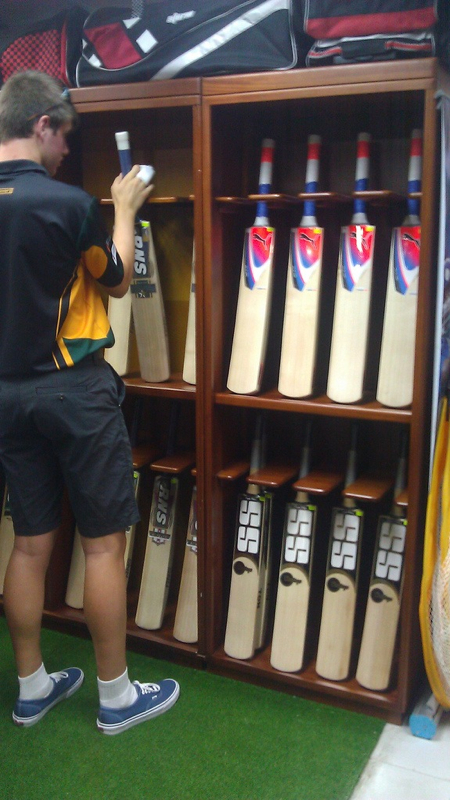
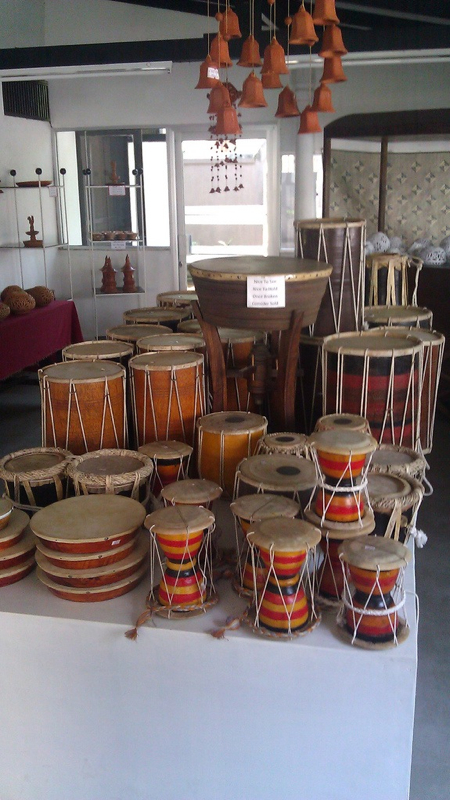
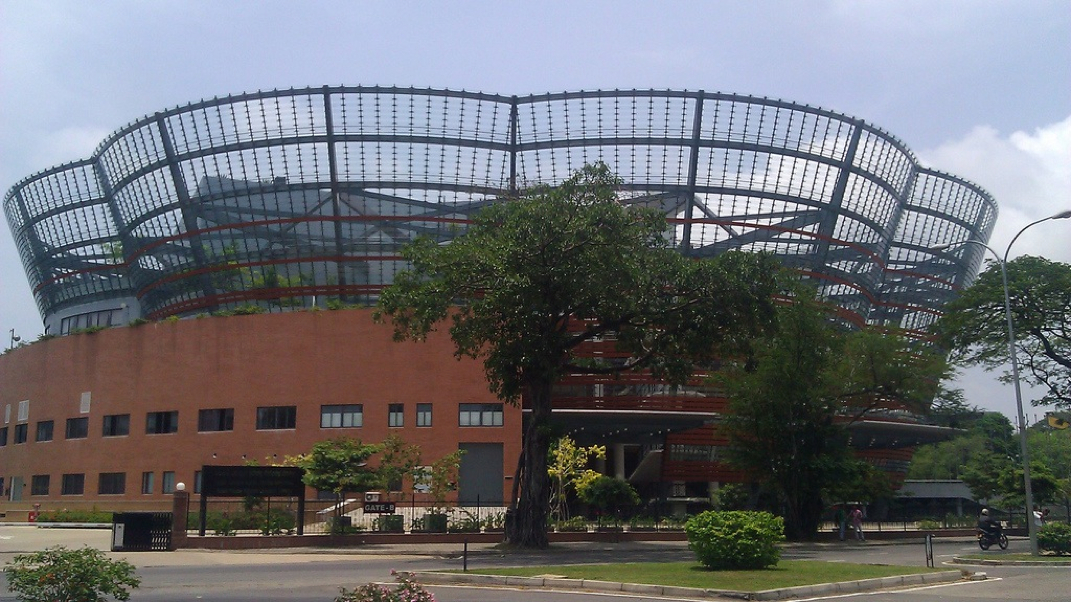
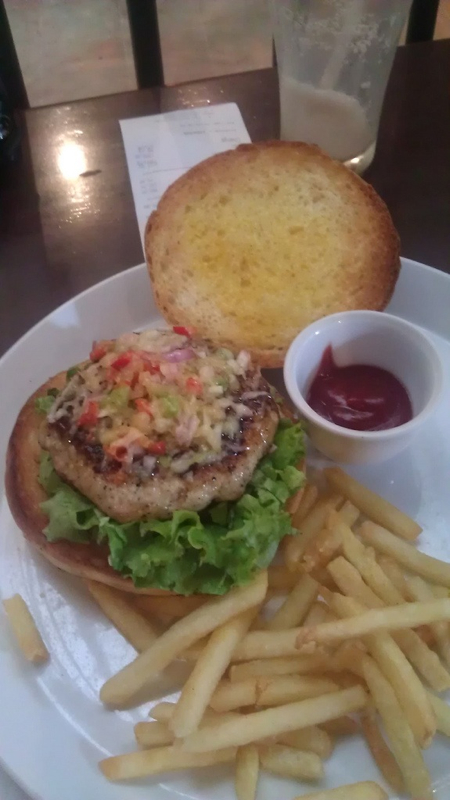
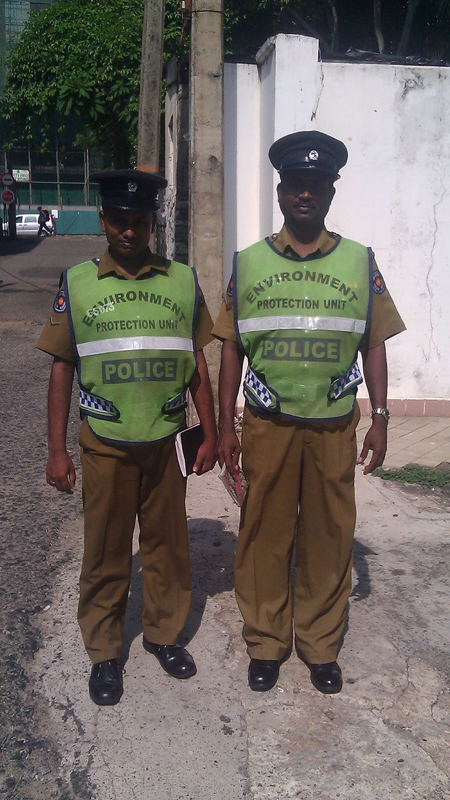
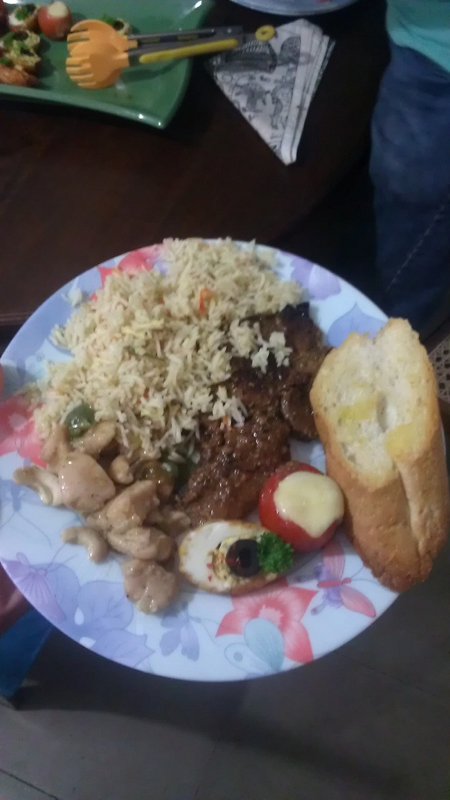
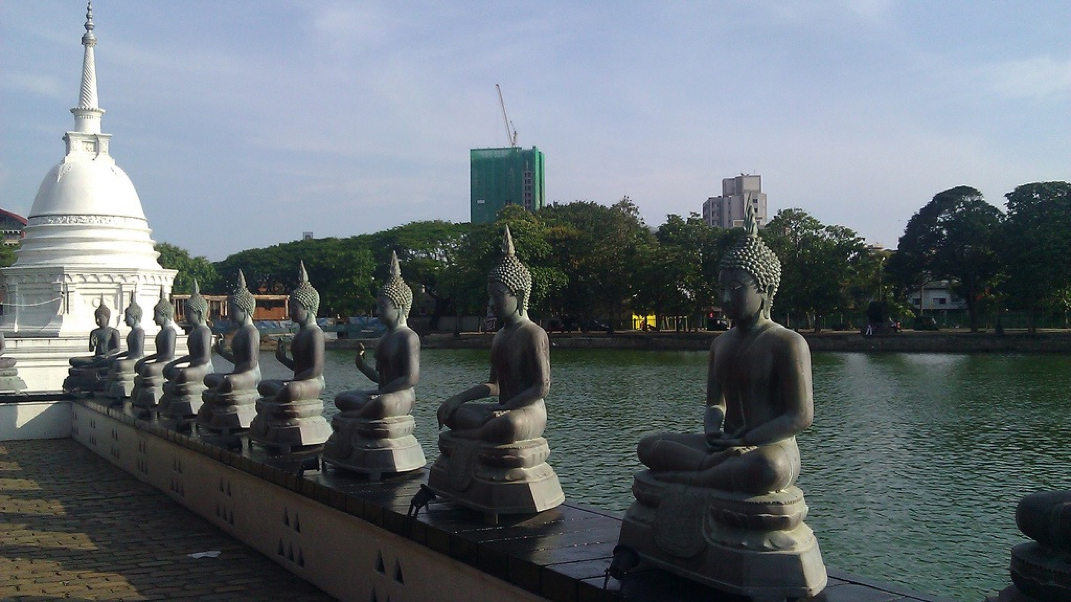
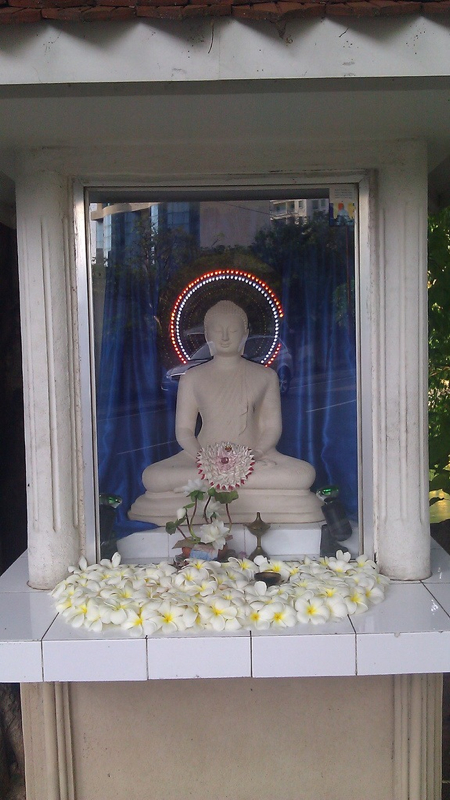
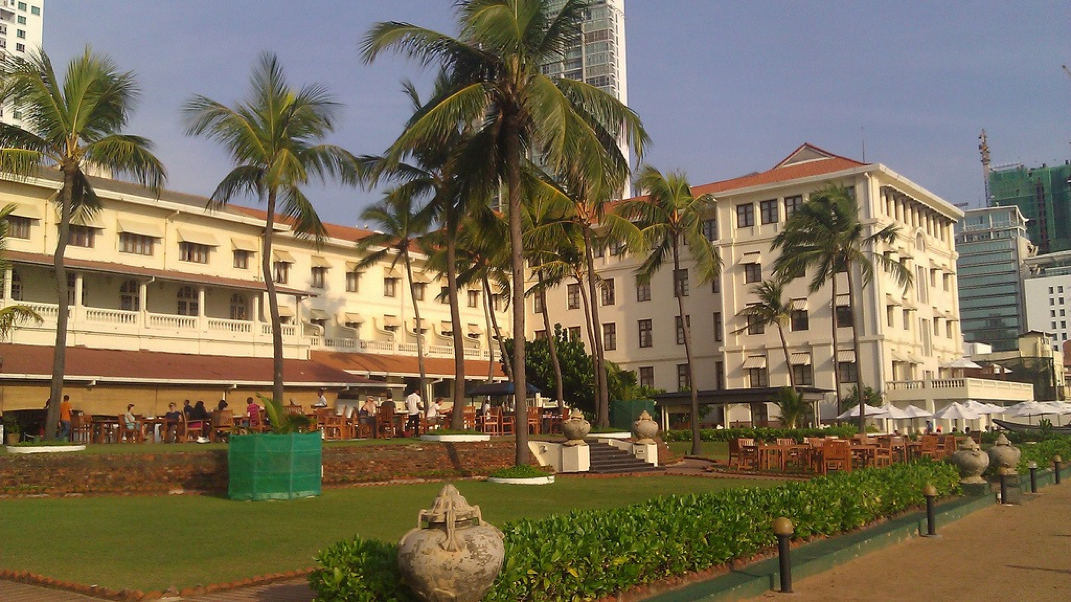
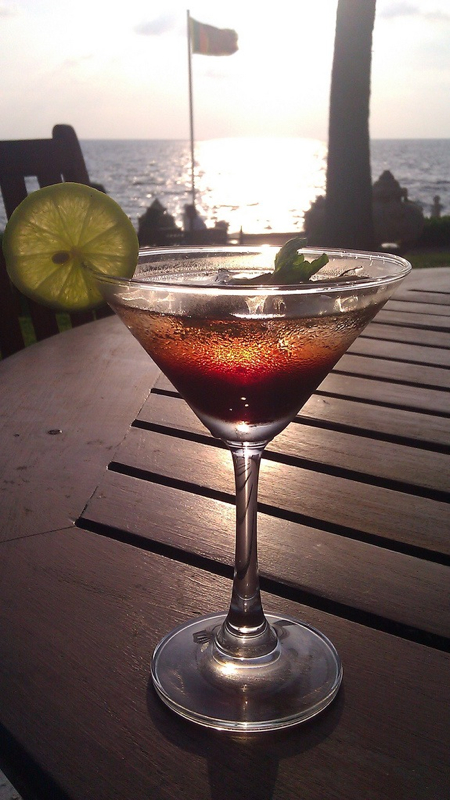
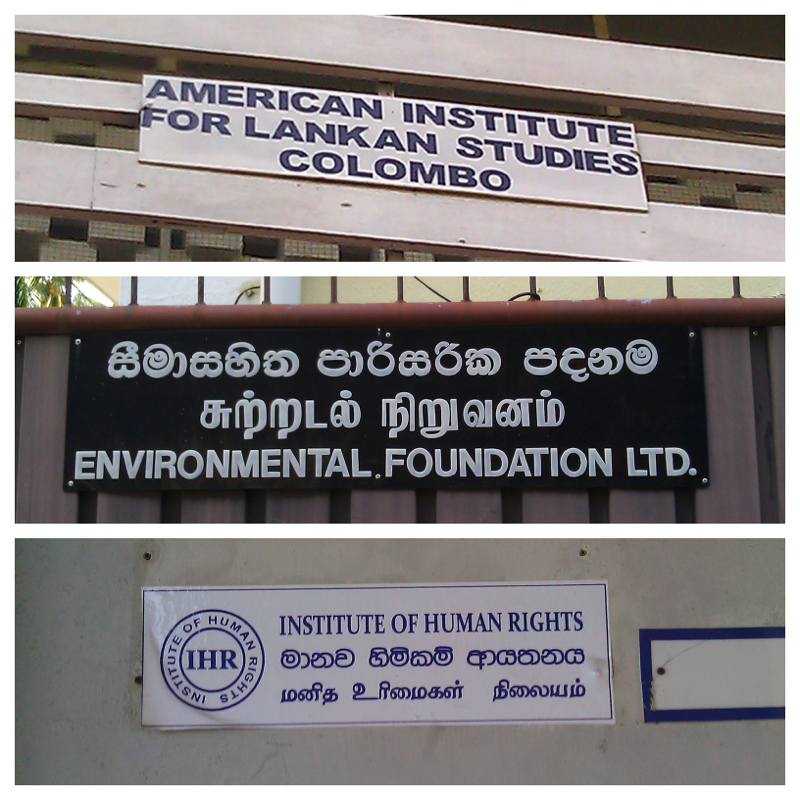
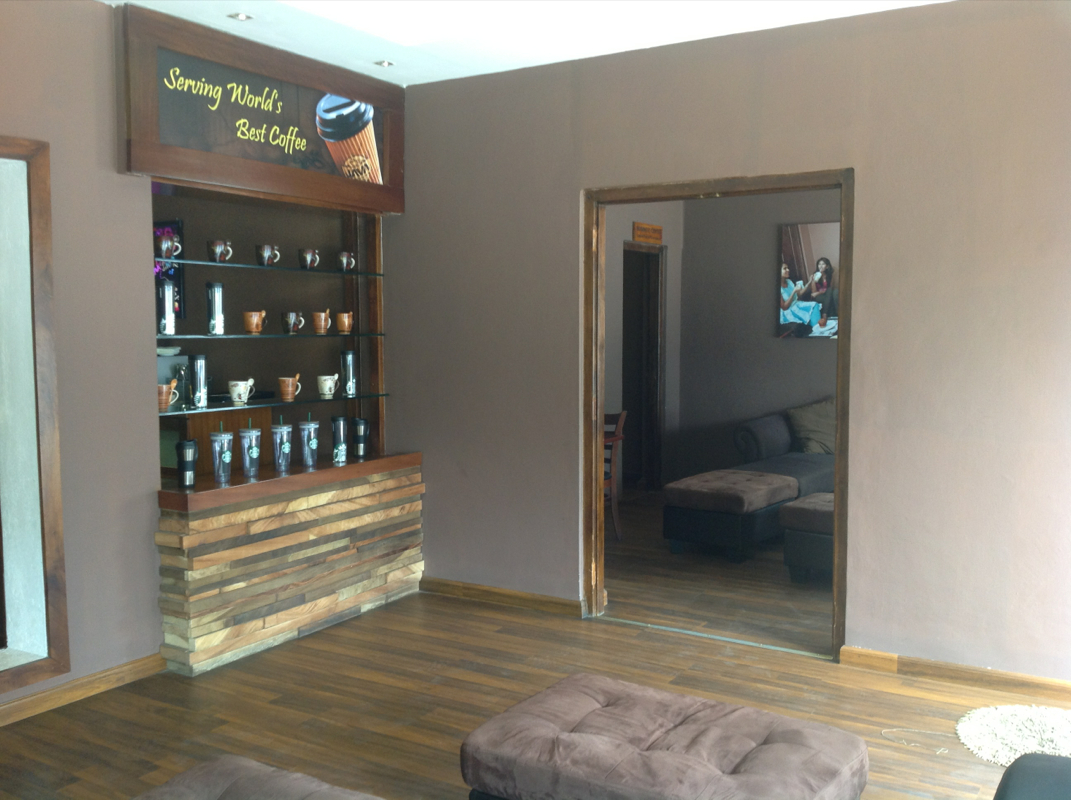
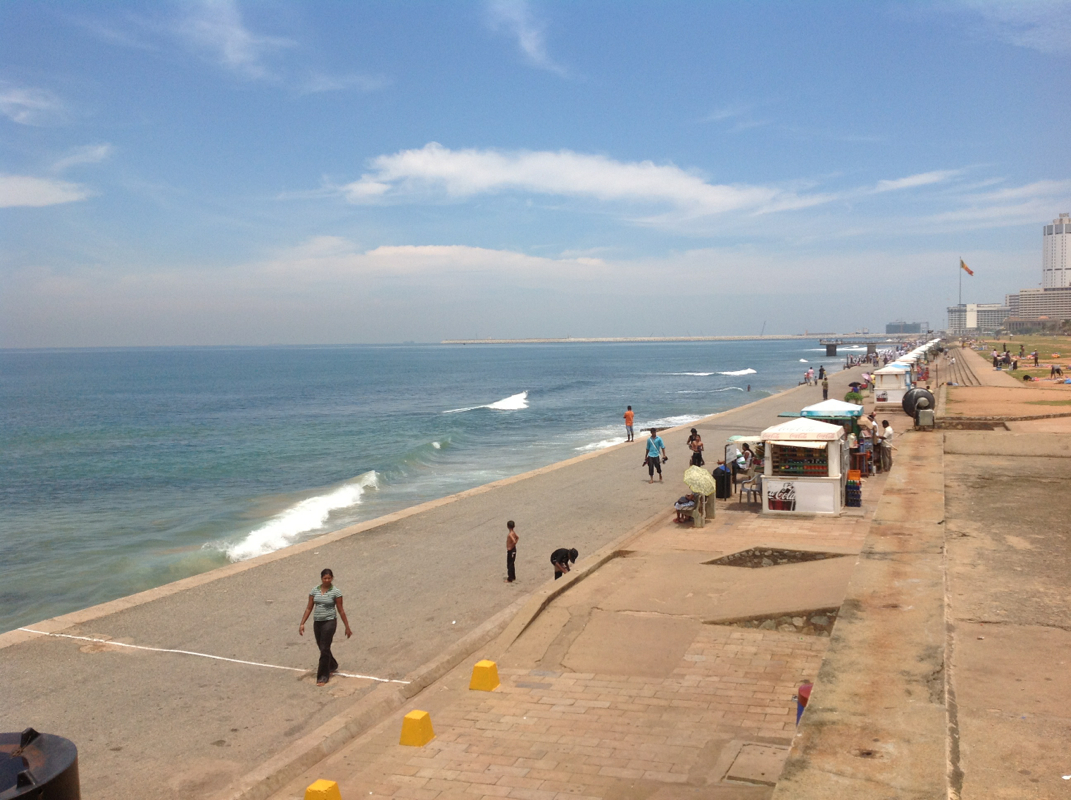
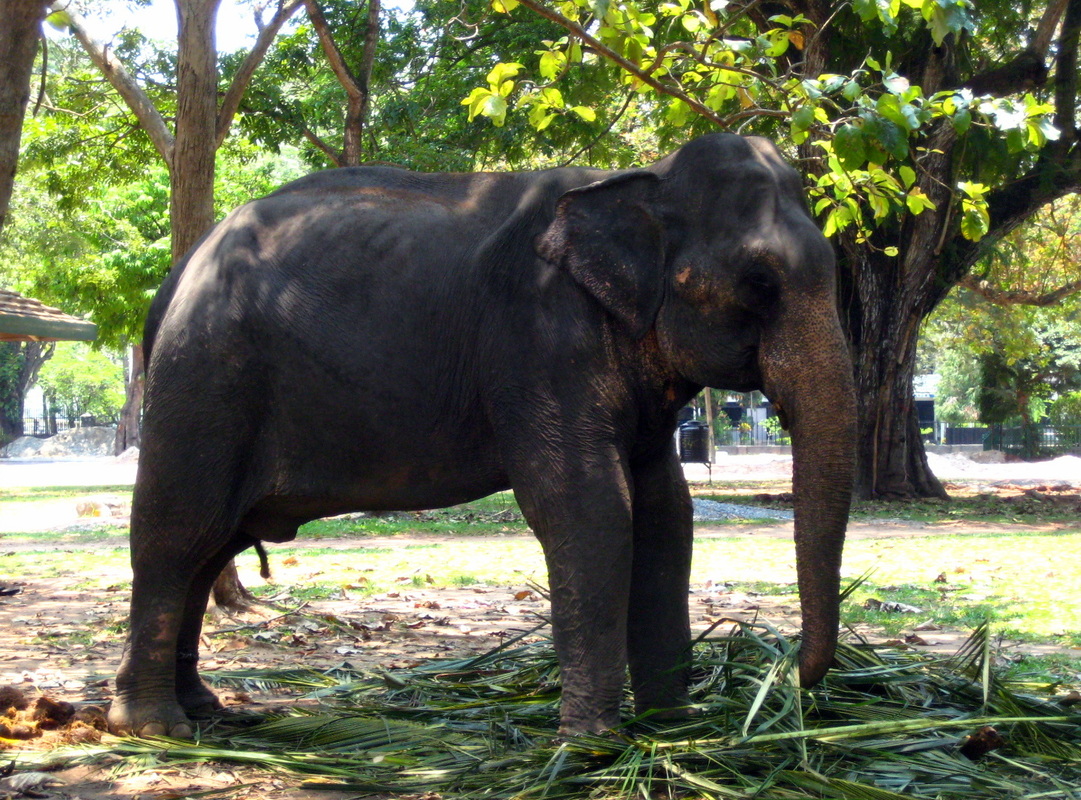
 RSS Feed
RSS Feed